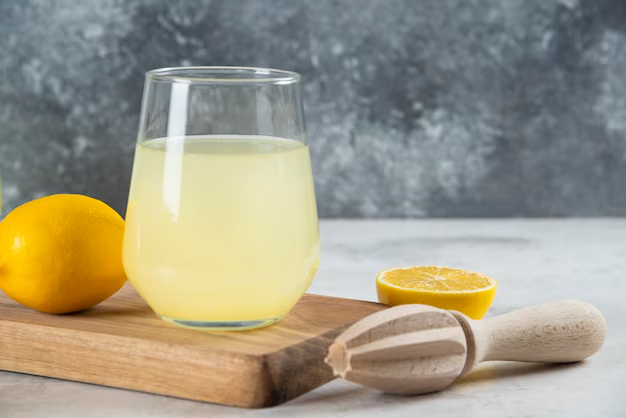Understanding Lemon Juice Storage: How Long Does It Last in the Refrigerator?
Lemon juice is a kitchen staple, cherished for its zesty flavor and versatility in cooking and baking. But like many things, it doesn't last forever. If you've ever wondered whether your lemon juice has outstayed its welcome in the fridge, you're not alone. In this comprehensive guide, we'll delve into the shelf life of refrigerated lemon juice, explore related topics, and provide practical tips for optimal storage.
🍋 Does Lemon Juice Really Go Bad?
Natural Preservation Qualities
Lemon juice, by nature, contains citric acid, which acts as a natural preservative. This acidic environment inhibits the growth of bacteria and prolongs the juice's lifespan compared to other fresh juices. However, it's not immune to spoilage, and proper storage is crucial to maintaining its quality.
Signs of Spoilage
Here's what to look for when assessing whether your lemon juice might have gone bad:
- Off Smell: Fresh lemon juice has a clean, citrusy aroma. A sour, unpleasant, or fermented odor is a sure sign of spoilage.
- Discoloration: Lemon juice should be pale yellow. If it turns darker or cloudy, it might be time to discard it.
- Separation or Sediment: While slight separation is natural, excessive sediment or a chunky texture indicates that the juice may no longer be good.
- Mold: If you notice any mold growth, it's best to toss the juice.
How Long Does Lemon Juice Last in the Fridge?
- Fresh-Squeezed Lemon Juice: Typically stays fresh for 2 to 4 days. Decay sets in rapidly after this period.
- Store-Bought Lemon Juice: Often, the shelf life is longer due to preservatives. Once opened, it usually lasts between 6 to 12 months, but always check the label for specific guidance.
🥶 Tips for Storing Lemon Juice Right
Optimal Storage Techniques
Storing lemon juice correctly can significantly extend its shelf life:
- Refrigeration: Always keep lemon juice in the refrigerator. Cooler temperatures slow the growth of bacteria.
- Use an Airtight Container: Prevent exposure to air and moisture by using a tightly sealed container, which helps preserve flavor and prevent contamination.
- Keep Away from Light: Store the container away from direct sunlight or fluorescent lights, which can affect the juice's quality.
Freezing Lemon Juice
For those looking to extend the life of lemon juice even further, freezing is an excellent option:
- Ice Cube Trays: Pour the juice into ice cube trays and freeze. Once solid, transfer the cubes into a freezer-safe bag for easy access.
- Label and Date: Always label and date the container or bag. Frozen lemon juice is best used within 4 to 6 months.
- Thawing for Use: Thaw lemon cubes in the refrigerator overnight or use directly in recipes where the juice will melt during cooking.
🍹 Creative Uses for Lemon Juice
Lemon juice is more than just a condiment. Here are some inventive ways to incorporate it into your kitchen routine, reducing waste:
- Flavor Enhancer: Add a splash to soups, stews, or roasted vegetables for a fresh kick.
- Beverage Brightener: Use in teas, cocktails, or homemade lemonades for a refreshing twist.
- Cleaning Agent: Its acidity makes lemon juice a natural cleaner for countertops, sinks, and cutting boards.
- Marinade Base: Mix with herbs and spices to create a zesty marinade for meats and seafood.
🧠 Understanding Related Subtopics
The Science Behind Lemon Juice Preservation
Citric acid in lemons acts as a preservative. It lowers the pH levels, creating an environment that's inhospitable to many spoilage-causing microorganisms. However, over time and with repeated opening, oxygen can lead to the degradation of the juice.
Bottled vs. Fresh-Squeezed: Quality Comparison
Store-bought lemon juice often contains additional preservatives, making it more durable but sometimes at the cost of flavor intensity. Fresh-squeezed juice, on the other hand, provides a bolder taste but demands immediate use or careful preservation.
Lemon Juice Substitutes
In a pinch, several alternatives can replicate the role of lemon juice in recipes:
- Lime Juice: Similar acidity and flavor make it an excellent substitute.
- Vinegar: While more potent, it can work in small amounts, particularly in savory dishes.
- Citric Acid Solutions: Diluted citric acid can mimic lemon juice's acidity in cooking.
📌 Quick Reference Summary: Lemon Juice Storage Tips
Here's a handy guide to keep on your fridge for easy reference:
- 🌡️ Refrigerate Always: Prolongs shelf life and maintains flavor.
- 🔒 Airtight Containers: Essential for preserving freshness.
- 🌞 Avoid Light: Store away from direct light sources.
- ❄️ Freeze in Cubes: Extend use by freezing in manageable portions.
- 🕑 Fresh vs. Bottled: Fresh lasts 2-4 days, bottled lasts 6-12 months after opening.
- 👀 Check for Spoilage: Be wary of any off-smells, discoloration, or mold.
While lemon juice doesn't last indefinitely in the fridge, understanding its storage intricacies lets you make the most of this versatile ingredient. By following these practical tips and insights, you can ensure your lemon juice stays fresh and vibrant, ready to elevate your dishes with its zesty goodness. Remember, when in doubt, give it a sniff, and trust your senses to guide whether it's time for a fresh batch. 🍋

